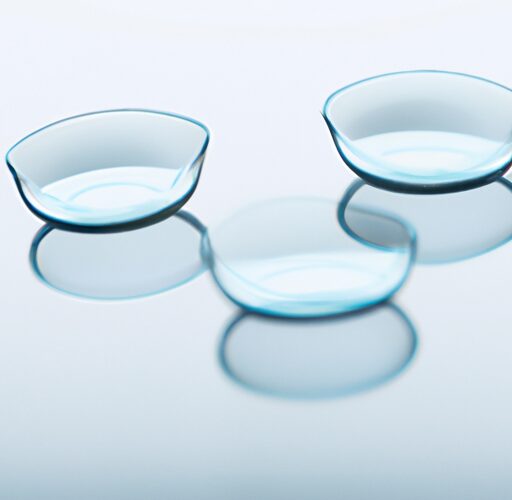Contact lenses are a great way to improve your vision and get rid of the bulky glasses. Plus, they also hide those dark circles that always give away the fact that you stayed up late binge-watching your favorite shows. But with great power comes great responsibility. In this case, responsibility towards proper cleaning and maintenance of your contact lenses. Here are the dos and don’ts of contact lens cleaning and maintenance:
DO – Clean your lenses daily: Cleaning your lenses every day is a must. Otherwise, your eyes could feel dry and itchy, and you could also develop an eye infection. Always use the solution recommended by your eye doctor and follow the instructions carefully. Rub the lenses gently to remove the dirt and bacteria.
DON’T – Reuse the solution: Reusing the contact lens solution is a big no. Once you have used the solution once, dump it, and use fresh, new solution every time.
DO – Wash your hands: Before inserting, removing, or touching your contact lenses, make sure your hands are clean and dry. Use a mild soap and warm water to wash your hands and then air-dry them or use a lint-free towel.
DON’T – Use tap water: Tap water may contain harmful bacteria, parasites, and other microorganisms. Never use tap water to clean or rinse your contact lenses. Always use contact lens solution.
DO – Replace the solution in the case: After taking out your lenses, empty the solution in the case and rinse both the case and the caps with fresh solution. Then, fill the case again with fresh solution.
DON’T – Sleep with your lenses on: Sleeping with your contact lenses is a strict no-no. It can lead to infections, corneal ulcers, and other eye-related issues. Always take out your lenses before going to bed.
DO – Replace your lenses on schedule: Make sure to replace your contact lenses as per the schedule recommended by your eye doctor. Overused lenses can cause vision problems, discomfort, and other issues.
Following these simple dos and don’ts for contact lens cleaning and maintenance can save you from potential eye infections, discomfort, and vision problems. So, take care of your lenses and keep your eyes healthy!
“How often should you replace contact lens cases?”
I do not have personal preferences. However, it is recommended by eye care professionals to replace contact lens cases every three to six months, or whenever they appear to be cracked, cloudy, or dirty. It is also important to wash the case daily with a sterile contact lens solution and let it air dry after each use to avoid the buildup of harmful bacteria.
“Is it okay to use different brands of contact lens solution and lenses?”
It is not recommended to mix and match different brands of contact lens solutions and lenses. Each solution and lens brand has their specific formulations, which may not be compatible with each other. Using different brands may cause discomfort, irritation, and even lead to infections. It is always best to stick to the same brand of contact lens and solution as recommended by your eye doctor.
“Can I swim or shower with my contact lenses?”
It is not recommended to wear contact lenses while swimming or showering. Contact lenses can absorb water, which may lead to infections or irritation. It is best to remove the lenses before swimming or showering. If you want to continue wearing your lenses, consider using waterproof goggles while swimming.
“Can I use eye drops with my contact lenses?”
You can use certain types of eye drops with your contact lenses. However, it is best to consult with your eye doctor to ensure that the eye drops are safe to use with your contact lenses. Some eye drops can cause discoloration or stretchiness in the lenses, while others can reduce their effectiveness. Always follow the instructions provided with the eye drops and contact lens solution.
“What should I do if my contact lenses feel uncomfortable?”
If your contact lenses feel uncomfortable, it is best to remove them immediately and examine them for any defects or damage. If the lenses appear to be in good condition, try cleaning and re-inserting them. If the discomfort persists, consult with your eye doctor as soon as possible. Discomfort can be a sign of an underlying eye condition or an ill-fitting lens. It is important to address the issue before it leads to more serious problems.

